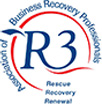HM Revenue & Customs will invariably be one of a Company’s creditors if and when a formal insolvency procedure is required, whether that be Company Administration or insolvent liquidation.
HMRC are usually the ones to apply the most pressure when seeking repayment of their debt and do tend to have greater resources available to them when attempting to recover outstanding monies. Because of this, dealing with HMRC when under financial pressure can, sometimes, be a daunting prospect.
What happens If I miss one of my HMRC payments?
First and foremost, it is important for directors to recognise that if payments to HMRC are not being made in preference to paying suppliers, then the Company will be suffering from cash flow pressure and could be trading whilst insolvent.
Missing ongoing payments to HMRC will alert them to the fact that your Company is facing some kind of financial issue which could, in turn, lead to greater focus being placed upon your Company by HMRC. If your Company is under scrutiny from HMRC, they will begin to watch your payment dates closely and will be quick to correspond with you upon any missed payments.
Ultimately, if left alone, HMRC have the power to issue a distrain notice, enter your business premises and remove assets, or more commonly, issue a petition to have the Company wound up. It is important to understand the options that are available to you and your Company if you begin to get into arrears with HMRC debt.
How do I deal with mounting HMRC Debt?
To understand the options that are available to you, it would probably be wise to speak with a Licensed Insolvency Practitioner who will be well versed in dealing with HMRC debt. By approaching a Licensed Insolvency Practitioner as soon as possible, the more options you are likely to have and the better chance you have of saving your business. We will provide all of the general advice and guidance that you need free of charge. Only in a formal matter will we begin to charge professional fees, and these will always be agreed with the client, in writing, before any such work commences.
Can I enter into a Time to Pay Agreement with HMRC?
Time to Pay arrangements were, at one time, relatively common and HMRC would discuss an informal proposal with the Directors to have their debt repaid over an agreed period, usually 6 months. If A Company is suffering from cash flow pressure, the repayment of what is usually a significant debt whilst maintaining ongoing trading payments, is usually too much for a business to achieve, which ultimately leads to a formal insolvency procedure, either Company Administration of insolvent liquidation. HMRC do continue to enter into Time to Pay arrangements, but they now do like to see further detailed financial information to support any proposal, and more often than not, they like to see this from a professional advisor, such as a Licensed Insolvency Practitioner, as they will understand that the directors are taking appropriate professional advice.
What Happens if I Let the HMRC Debt to Increase?
If you have entered into a Time to Pay Arrangement, your business will understandably be on HMRC’s watch list for arrears. Should you fall behind with your ongoing HMRC payments, or indeed the repayment of arrears through an agreed Time to Pay Arrangement, then HMRC will take the necessary steps to ensure that their debt is not increased and will force your business to cease trading. It is important as Directors that you act on any HMRC debt as soon as possible. If you feel that you are unlikely to be able to meet your ongoing HMRC liabilities, then speak with one of our Licensed Insolvency Practitioners today.
Am I Insolvent if I Can’t Pay my HMRC debt?
If your Company cannot pay any of its liabilities as and when they fall due, you could be trading whilst insolvent. This could, if your Company enters into a formal insolvency procedure, lead to claims of wrongful or fraudulent trading. If your Company cannot meet is liabilities as and when they fall due, the Directors must take steps to act in the best interests of the Company’s creditors and take professional advice, or cease trading immediately to prevent their position from becoming worse. Failure to address any debt issues, including HMRC Debt, will ultimately lead to your Company’s affairs being taken out of your hands.
Can I be Held Personally Responsible for HMRC Debt?
If you fail to cease trading and address the arrears of HMRC debt that your Company has incurred, it is possible that you could, as a director of the Company, be held personally responsible for some of the Company’s debts. Failure to pay National Insurance Contributions on your salary could lead to HMRC sending you a personal liability notice.
If you continue to trade whilst insolvent, especially if you continue to take credit when you are fully aware of the Company’s financial position, you could be held accountable for wrongful trading, which ultimately could lead to you being personally responsible for the Company’s debts.
What should I do if I have mounting HMRC Debt?
If your Company is suffering from financial stress, speak with one of our Licensed Insolvency Practitioners today. We will provide you with free advice and guidance and present to you all of the options that are available to you and your Company.


